#digestivetract
Text
Vampires: a rant
So I've been thinking about vampires lately. I'm writing a story that involves them, so I'm doing research to see what exactly I want for the lore of this world and how vampires function in it. I may post a thing chronicling everything when I think I have things down. But as I'm examining different portrayals of vampires in folklore and media, there is one thing that is really bothering me: vampires should be able to excrete waste.
I know this sounds absurd and crude, but seriously think about it. Really think about it. They should, and yet they really don't in most depictions or they just don't mention it at all. And I can understand why you would when writing a story. It's not really an important detail and is pretty gross to include, unless you want to go all in on worldbuilding your story. But regardless, vampire should have to use the bathroom. And a big reason why I believe this is because of the creature that shares their name: the vampire bat.
Vampire bats consume blood just like everyone knows. But these bats do poop like other bats that eat insects and fruit. And other hematophagous creature excrete waste as well. And humans who consume blood as food will obviously have to use the bathroom after it's digested, although I will admit that foods with blood are often only partially composed of blood and have other foodstuff in it. But still. It is in the laws of nature that when an organism consumed something, it uses whatever nutrients are in there to the best of its ability and then gets rid of the waste. For as powerful vampires are and having all those cool abilities, I doubt that they have the ability to completely use up consumed blood and everything in the blood.
I even found this nifty video on what the biology of a vampire would entail and how the transformation would occur and the narrator did say that vampires would have the need to excrete waste from the blood the consumed. I won't go into full detail as what was said, but the narrator said that when consuming blood, the vampire would need to dispose of the excess nitrogen gotten through the consumption of blood through urination.
Now I'm not saying that this is something to be hyper focused on, but it is definitely something that I think should be thought about more. Vampires have this glamourous image of being so perfect and powerful and beyond humanity that I think it's interesting to think that they still would have to deal with one of the most mundane but necessary parts of being alive.
And while I would ordinarily end a rant here, there is still one more thing I'd like to talk about but this time it applies to a very specific vampire media. I had never heard of this anywhere else so I assume it is something that the creators made up for their work but it really bothers me.
So I've never seen anything What We Do in the Shadows. Neither the movie or the tv show. But I've been reading this fic on AO3 called Superb Owls & Other Oddities by wrongpedaldamnit. For context, it's a The Owl House fic that takes place in the world of What We Do in the Shadows. I recommend it if you like The Owl House and What We Do in the Shadows. But I'm not here to talk about the fic and the things that happen in it (that's for another rant), I'm here to talk about the transformation process into a vampire.
Basically, what wrongpedaldamnit's fics say is that when a human is turning into a vampire, they will vomit up their entire digestive system. There isn't much detail put into what organs exactly exit the body, but for this thought experiment, let's just stick with just the gastrointestinal tract (esophagus, stomach, and intestines) and ignore the pancreas, liver, and gallbladder (we will come back to these organs).
I will say that this is an interesting aspect of the vampiric transformation that I haven't seen before. My problem with it is that it seriously confuses me on so many levels. So these vampires are drinking blood right? Where the heck is the blood supposed to go if you are missing the majority of the organs in your abdomen? When food is consumed by humans, it travels down the esophagus and into the stomach to be digested. It then travels through the intestines to be broken down further and extract all the nutrients the body possibly can. Eventually, the waste exits the body. Simple.
But how are vampires supposed to process the blood they've consumed if the have no GI tract? Some lines in the fic imply that while a vampire could swallow normal food, it would just sit there inside of them and not be processed due to not having a digestive system and that makes sense. But how does that work with the blood they are constantly consuming? Does the blood go down their throat and and just spill into the empty void in their torso where all the organs used to be? Does it slowly get absorbed into the body and if it did, how would it do that? Would the other organs I mentioned (liver, pancreas, gallbladder) just be swimming in a soup of blood? Would a vampire be able to feel the blood sloshing around inside them with an even greater degree of motion than a human? I feel like that would cause nausea. Ugh.
And then there's the whole deal with vampires being able to get drunk and high. In order to do so, they have to drink the blood of a drunk or high person, which raises its own series of questions like: How do vampires get a hold of such blood in their clubs and bars? Do they just capture and give humans the substances that would make them drunk or high? Do they drain them of all their blood once they are in an intoxicated state? How do they drain them, like do they use an IV or string them up and let the blood drip out? There's so much that I want answered. But back to the subject at hand.
In humans, alcohol and drugs are metabolized mostly in the liver and then absorbed into the bloodstream. So does the same happen for vampires? If we assume that this world's vampires don't vomit up the liver (side note: this seems incredibly unlikely considering the liver is connected to the GI tract), would the blood infused with the chemical substances be processed in the liver and then spread to the rest of the body? This seems so, but the liver isn't the only place that alcohol and drugs are metabolized. If consumed, they can also be processed in parts of the GI tract, which we know that these vampires don't have. So it would only have to be done in the liver.
But what if they had absolutely none of the organs that do anything for digestion? So no liver? Then how are the vampires processing drunk and/or high people blood? Wouldn't it just sit and slosh around in them the same way the sober blood does? And if the vampires are able to absorb the blood into their bodies through some mystical means, I doubt it would be as potent as the actual substance and a vampire would have to drink a lot of drunk person blood to get hammered.
First because I doubt that the absorption means would be nearly as efficient as a plan old digestive system and second, the blood would be diluting it. Remember, they are drinking a person's blood with a high blood alcohol content or high drug content, not consuming the alcohol or the drug itself. It would be like drinking a watered down alcoholic, like a wine cooler. You can get drunk off it but it'll take a lot more than just straight wine.
I really don't know. I need to ask someone who knows more about What We Do in the Shadows to get their opinion and ask them if the show or the movie has ever addressed any of the issues that I have pondered here. Anyway, this is getting long so I think I'll cap it here.
TLDR: Vampires should have to need to use the bathroom and What We Do in the Shadows vampires having no digestive system makes no sense.
If you have any opinions, let me know. I'd love to discuss with you. Thanks for reading!
Wait what about the kidneys and bladder? Are those still in the bod-
#vampire#biology#what we do in the shadows#worldbuilding#digestivetract#can someone please explain#does what we do in the shadows address this at all#i don't remember the name of the video i'll find it later
7 notes
·
View notes
Text
#gastrointestinal#health#gastroenterology#doctor#gastro#healthy#covid#digestivetract#gastrointestinalproblems#guthealth#kesehatan#gastrointestinalhealth#o#ibs#a#foundation#healthfoundation#gastroenterologiindonesia#gastroenterologi#gangguansalurancerna#artikelkesehatan#artikel#ygi#yayasangastroenterologiindonesia#healtharticel#medicina#gastroenterologia#gerd#pandemic#medicine
0 notes
Text
0 notes
Text
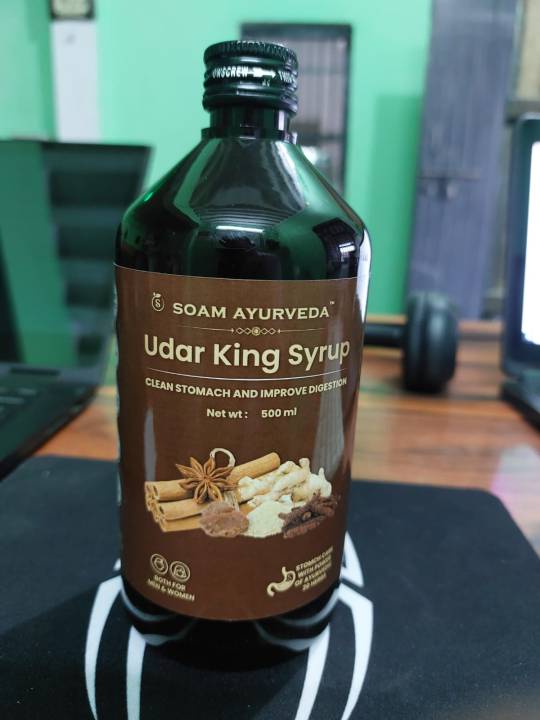
Udar King Syrup
Buy Now On Flipkart , Meesho Etc...
New Stock Available Now ...
If Any Enquiry Call Us +91 -9811913232
#Udarking#Soamayurveda#workout#digestive system#digestivetract#digestion#digestivesupport#digestivehealth#Soam Udar King Syrup#nutrition#Udar#Soam Udar#Pachan
0 notes
Text
Understanding the gastrointestinal system: A guide to the organs, functions, and common conditions
The gastrointestinal (GI) system, also known as the digestive system, is a complex network of organs and tissues that work together to break down food, absorb nutrients, and eliminate waste from the body. Understanding the structure, function, and common conditions of the GI system can help individuals make informed decisions about their diet, lifestyle, and overall health. In this article, we will provide a comprehensive guide to the GI system, including its organs, functions, and common conditions.
Dr. Nachiket Dubale is an outstanding Gastroenterologist in Pune who is passionate about treating all gastrointestinal issues such as gastroenterology and liver disease. He makes a significant contribution to analytic and therapeutic enteroscopy. His areas of expertise include upper endoscopy, pancreatolgy, and minor internal diseases. Gastroenterology Colonoscopy GI Endoscopy/ERCP Sigmoidoscopy for Therapeutic Purposes.
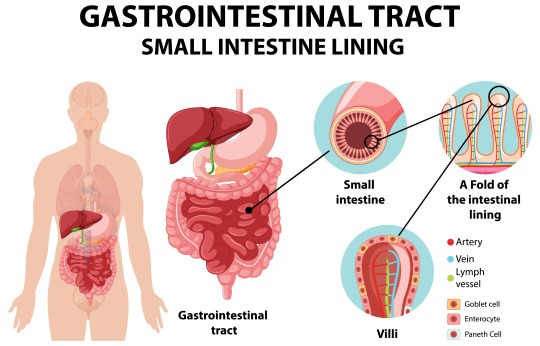
Organs of the Gastrointestinal System
The gastrointestinal system (GI) is made up of numerous organs that work together to digest food and absorb nutrients. The primary organs of the Gastrointestinal system are as follows:
Mouth: The mouth is the first organ of the GI system, where food is broken down by chewing and mixed with saliva, which contains enzymes that begin the process of digestion.
esophagus: The esophagus is a muscular tube that links the mouth and stomach. It transports food from the mouth to the stomach by a process known as peristalsis, which is the repetitive contraction of esophageal muscles.
Stomach: The stomach is a sac-like organ that mixes and grinds food with digestive juices, including hydrochloric acid and enzymes. This process breaks down food into a semi-liquid mixture called chyme.
small intestine: The small intestine is a long, narrow tube connecting the stomach to the large intestine. It absorbs the majority of nutrients and has little finger-like extensions called villi that improve the surface area for absorption.
Large intestine: The large intestine, also known as the colon, absorbs water and electrolytes from the chyme, forming solid feces that are eventually eliminated from the body.
Functions of the Gastrointestinal System
The primary function of the GI system is to break down food into nutrients that can be absorbed and utilized by the body. The GI system also plays a crucial role in the elimination of waste from the body. The following are the primary functions of the GI system:
Ingestion: The act of ingesting food through the mouth.
Mechanical Digestion: The process of breaking down food into smaller pieces through chewing and mixing with digestive juices.
Chemical Digestion: The process of breaking down food into smaller molecules using digestive enzymes.
Absorption: The process of taking in nutrients, vitamins, and minerals from the digested food through the walls of the small intestine.
Elimination: The process of expelling waste materials from the body through the rectum and anus.
Common Conditions of the Gastrointestinal System
The GI system can be affected by a variety of illnesses, ranging from simple digestive issues to major diseases. The following are some of the most frequent GI system conditions:
Acid reflux: When stomach acid runs back into the oesophagus, causing heartburn and discomfort.
IBS (irritable bowel syndrome) is a chronic disorder that causes abdominal pain, bloating, constipation, and diarrhoea.
Inflammatory bowel disease (IBD): A group of chronic diseases that cause inflammation in the digestive tract, including ulcerative colitis and Crohn's disease.
Gastroenteritis: A viral or bacterial infection that causes inflammation of the stomach and intestines, leading to diarrhea, vomiting, and stomach pain.
Constipation: A condition characterised by infrequent or difficult bowel movements.
Hemorrhoids: Swollen veins in the anus and rectum that can cause discomfort, bleeding, and itching.
Celiac disease is an autoimmune ailment characterised by the body's inability to tolerate gluten, a protein present in wheat, barley, and rye.
Diverticulitis: An inflammation of the small pouch.
#gastrointestinal#health#gastroenterology#doctor#gastro#healthy#covid#digestivetract#gastrointestinalproblems#guthealth#kesehatan#gastrointestinalhealth#o#ibs#a#foundation#healthfoundation#gastroenterologiindonesia#gastroenterologi#gangguansalurancerna#artikelkesehatan#artikel#ygi#yayasangastroenterologiindonesia#healtharticel#medicina#gastroenterologia#gerd#pandemic#medicine
0 notes
Photo
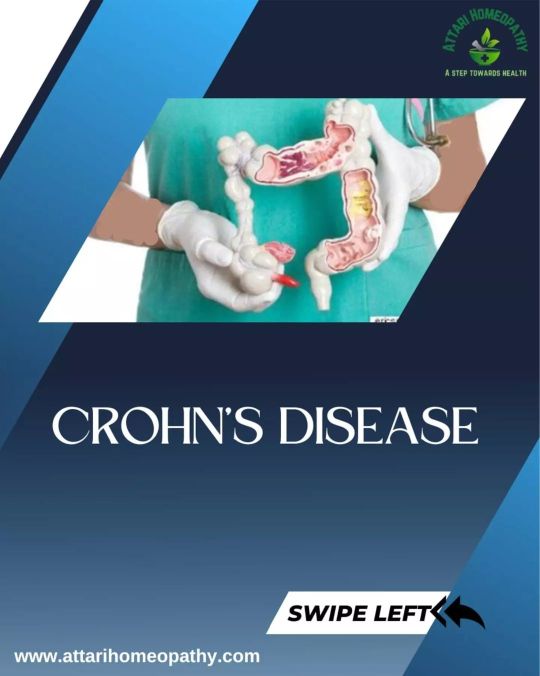
Here we are done with digestive system. These are few common diseases of digestive system. There are many other. If you want to learn about anyother disease. Comment down below or DM us @attarihomeopathy @attarihomeopathy #digestivehealth #digestivetract #GIT #healthydigestion #guthealth #gutfeeling #guthealthmatters #attarihomeopathy #medicalstudent #medicine #subject #medicinecourier #onlinehomoeopathy #onlinetreatment #allaboutbelgaum #homoeopathyheals #homoeopathy #materiamedica #naturalremedy #dietfordigestion #india (at Karnataka India) https://www.instagram.com/p/CjZMkhIBlkG/?igshid=NGJjMDIxMWI=
#digestivehealth#digestivetract#git#healthydigestion#guthealth#gutfeeling#guthealthmatters#attarihomeopathy#medicalstudent#medicine#subject#medicinecourier#onlinehomoeopathy#onlinetreatment#allaboutbelgaum#homoeopathyheals#homoeopathy#materiamedica#naturalremedy#dietfordigestion#india
0 notes
Text
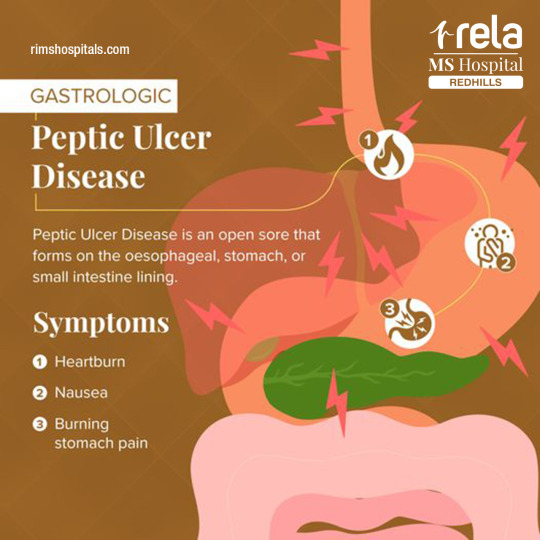
Peptic ulcer disease arises when stomach acid affects your digestive tract lining. They are typically developed as a result of inflammation induced by the bacteria H. pylori, along with erosion caused by stomach acids. Some of the common symptoms of peptic ulcer disease include troubled breathing, nausea, and appetite changes.
For more details reach us on 044-7111 1111, visit www.rimshospitals.com
#rimshospitals#Pepticulcerdisease#ulcerdisease#ulcer#digestivetract#chennai#healthcare#health#healthylife#healthyliving
0 notes
Text
#GHUCG2022Dubai Call for Abstract Track: 24 Gastrointestinal Immunology
#GHUCG2022Dubai Call for Abstract Track: 24 Gastrointestinal Immunology
Dec 21-22, 2022; Dubai, UAE & Online
Submit today!
https://gastroenterology.universeconferences.com/submit-abstract/
We are looking for #research works #casestudy #bestpractice #poster
For queries WhatsApp here: https://wa.me/442033222718
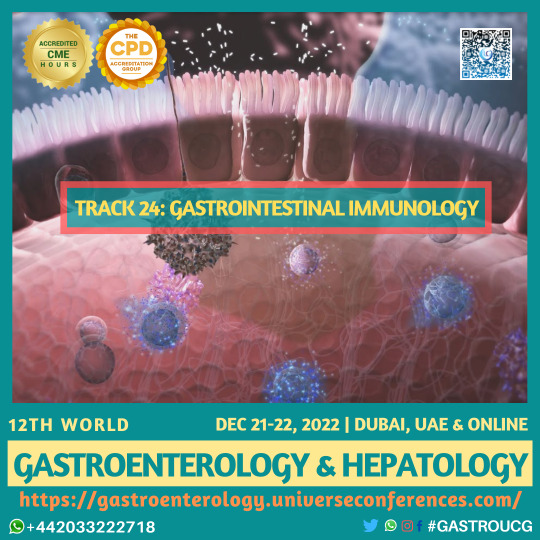
0 notes
Text
Everything About Rectul Bleeding
Introduction
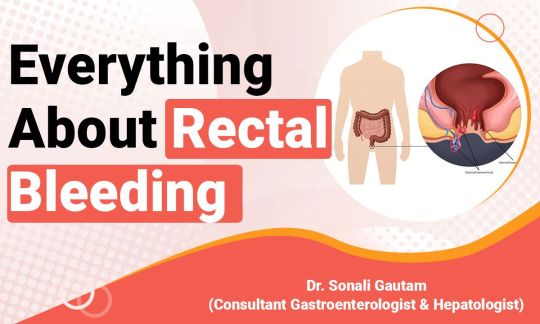
Rectal bleeding refers to the passage of blood through the rectum, which is the final part of the digestivetract. It can manifest in various forms, such as bright red blood in the stool, blood on toilet paper, or blood in the toilet bowl. While rectal bleeding can be alarming, it is crucial to understand its underlying causes and seek appropriate medical attention.
Understanding Rectal Bleeding
Causes of Rectal Bleeding
Rectal bleeding can occur due to several factors, including:
Hemorrhoids: Swollen blood vessels in the rectum or anus.
Anal Fissures: Small tears or cracks in the lining of the anus.
Diverticulosis: Small pouches that develop in the colon.
Inflammatory Bowel Disease: Conditions like Crohn's disease and ulcerative colitis.
Colorectal Cancer: Malignant growths in the colon or rectum.
Symptoms of Rectal Bleeding
The symptoms associated with rectal bleeding may include:
Blood in the stool (bright red or dark)
Blood on toilet paper or in the toilet bowl
Abdominal pain or discomfort
Changes in bowel habits
Fatigue or weakness
When to Seek Medical Attention
It is important to consult a healthcare professional if you
experience rectal bleeding accompanied by the following:
Severe or persistent bleeding
Abdominal pain or cramping
Dizziness or lightheadedness
Weight loss or loss of appetite
Changes in bowel movements
Diagnosing Rectal Bleeding
To diagnose rectal bleeding, your doctor may perform the
following:
Medical History and Physical Examination
A thorough medical history and physical examination will help
determine potential causes and risk factors associated with rectal bleeding.
Your doctor may ask about your symptoms, medical history, and lifestyle habits.
Diagnostic Tests and Procedures
Additional diagnostic tests and procedures may be recommended,
including:
Colonoscopy: Examination of the colon and rectum using a flexible tube with a camera.
Flexible Sigmoidoscopy: Inspection of the lower part
Common Conditions Associated with Rectal Bleeding
Rectal bleeding can be attributed to
various underlying conditions. Let's explore some of the most common ones:
1. Hemorrhoids: Hemorrhoids are swollen blood vessels located in the rectum or anus. They can be internal or external and are often caused by increased pressure on the veins during bowel movements, pregnancy, or chronic constipation.
2. Anal Fissures: The lining of the anus can develop minute tears or cracks known as anal fissures. They may develop as a result of an injury to the anal region, the passage of large or hard faeces, or persistent diarrhoea. In most cases, anal fissures hurt and can sometimes cause rectal bleeding.
3. Diverticulosis: Diverticulosis is a condition characterized by the development of small pouches, called diverticula, in the colon wall. When these pouches become inflamed or infected, it leads to diverticulitis, which can cause rectal bleeding along with abdominal pain and changes in bowel habits.
4. Inflammatory Bowel Disease (IBD): Inflammatory bowel disease includes conditions like Crohn's disease and ulcerative colitis. These chronic inflammatory conditions affect the digestive tract and can cause rectal bleeding, diarrhea, abdominal pain, and weight loss.
5. Colorectal Cancer: Colorectal cancer refers to malignant growths that develop in the colon or rectum. Rectal bleeding is one of the common symptoms of colorectal cancer, along with persistent changes in bowel habits, unexplained weight loss, and abdominal discomfort.
Treatment Options for Rectal Bleeding
The treatment approach for rectal bleeding depends on the
underlying cause and severity of the condition. Here are some common treatment
options:
1. Conservative Approaches: Mild cases of rectal bleeding caused by conditions like hemorrhoids or anal fissures can often be managed through conservative measures. This may include dietary changes, increasing fiber intake, maintaining proper hygiene, and avoiding straining during bowel movements.
2. Medications: In some cases, medications may be prescribed to alleviate symptoms and promote healing. These may include topical ointments or creams for hemorrhoids, stool softeners to ease bowel movements, or anti-inflammatory drugs to manage inflammation in conditions like inflammatory bowel disease.
3. Surgical Interventions: If conservative measures and medications fail to resolve the issue, surgical interventions may be considered. Surgical procedures for rectal bleeding vary depending on the underlying cause. They may involve removing hemorrhoids, repairing anal fissures, or treating more serious conditions such as diverticulosis or colorectal cancer.
Prevention and Lifestyle Tips
Taking preventive measures and adopting a healthy lifestyle can
help reduce the risk of rectal bleeding. Consider the following tips:
· Maintain a Healthy Diet: Include high-fiber foods, such as fruits, vegetables, and whole grains, in your diet to promote regular bowel movements and prevent constipation.
· Hydration and Regular Exercise: Drink an adequate amount of water daily to stay hydrated, as it helps soften the stools. Engage in regular exercise to improve digestion and maintain a healthy weight.
· Avoid Straining during Bowel Movements: Straining during bowel movements can exacerbate conditions like hemorrhoids and anal fissures. Ensure you have enough fiber in your diet and allow sufficient time for bowel movements.
0 notes
Text
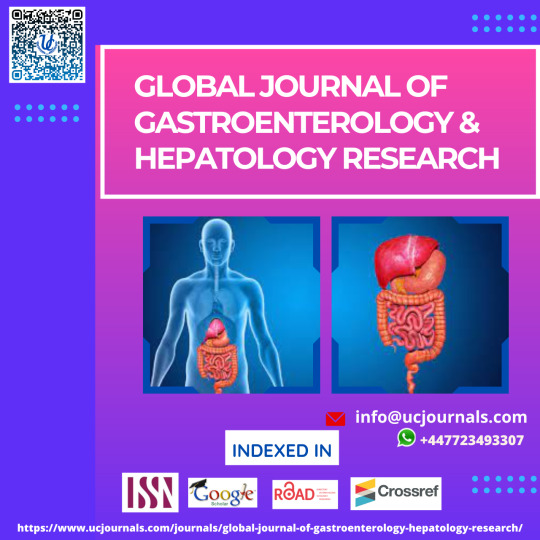
Ongoing Research in Gastroenterology and Hepatology. Share your research and make it Global.
To know visit: https://www.ucjournals.com/journals/global-journal-of-gastroenterology-hepatology-research/
#noninvasivesurgery #gastrointestinal #physician #guthealth #internalmedicine #gastroparesis #gastroenterologia #colonoscopy #endoscopy #gastro #gastroenterologist #GI #Surgery #endoscopy #Gastroenterologyjournal #health #covid #gastroparesis #endoscopia #invisibleillness #digestivetract #hospital #healthy #Gastroenteroloogia #Gastroenterologie #Γαστρεντερολογία #Gastroenterolojî
0 notes
Text
Zero Kabj
This Ayurvedic powder works by increasing the water in our body resulting in softer stools to help get things moving again without pain. It helps relieve when you need it most. This ayurvedic formulation will speed up stool movement by stimulating bowel muscles and will help in drawing water into the intestines to soften stools.
Good health starts with our gut and nearly everyone suffers from a leaky gut due to the toxic environments we live in today and the constant battle we fight with unhealthy foods. Zero Kabj is a perfect blend of modern research and ancient Ayurvedic heritage.
#zerokabj#leakygut#toxicenvironment#unhealthyfoods#increasingwater#softerstools#stoolmovement#bowelmuscles#intestines#softenstools#constipation#bloatinggas#bloating#energized#motivated#stomachproblems#digestivehealth#indigestion#goodbacteria#digestivetract#healthyelimination#gutcell#gutcellregeneration#impurities#regularbowel#completebowelmovements
1 note
·
View note
Video
Benefits The aloe vera gel from Forever Living helps in improving your health and also nourishes your skin and hair. The aloe vera gel is good for the digestive system and aids in good and fast digestion. It is also a natural energy booster. It boosts immunity and lowers blood sugar and cholesterol #digestivehealth #digestive #digestivesystem #digestiveenzymes #digestivesupport #digestives #digestiveissues #digestivebiscuits #digestiveaid #digestivetractparalysis #digestivetract #digestivedisorder #digestivecookies #digestivebitters #digestiveheath #digestivereset #digestivesystems #digestivebreak #digestiveelixir #digestivesystemproblems #digestiveavena #digestiveteaseries #digestivesensitivities #digestivesystembegining #digestiverelief #digestiveproblems #digestivewellness #digestiveenzyme #digestiveheatlh #digestivetea https://www.instagram.com/p/CRMyGhOgxce/?utm_medium=tumblr
#digestivehealth#digestive#digestivesystem#digestiveenzymes#digestivesupport#digestives#digestiveissues#digestivebiscuits#digestiveaid#digestivetractparalysis#digestivetract#digestivedisorder#digestivecookies#digestivebitters#digestiveheath#digestivereset#digestivesystems#digestivebreak#digestiveelixir#digestivesystemproblems#digestiveavena#digestiveteaseries#digestivesensitivities#digestivesystembegining#digestiverelief#digestiveproblems#digestivewellness#digestiveenzyme#digestiveheatlh#digestivetea
0 notes
Photo
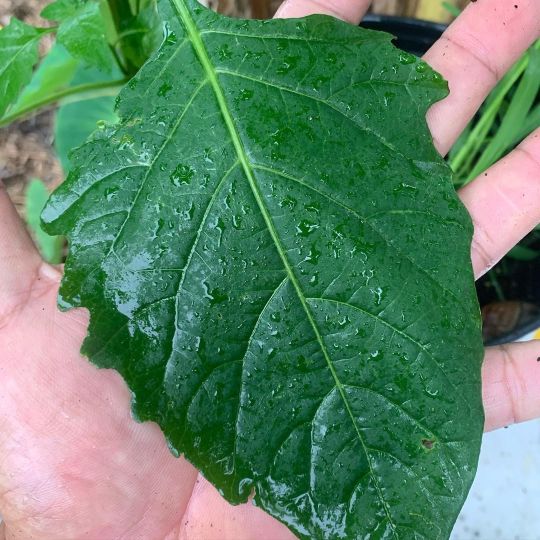
Hawaiian Name(s): pōpolo, polopolo, ‘olohua, pōpolohua (Ni‘ihau) Scientific Name: Solanum americanum Description: Annual herbs, up to 1.2 m tall, wide-spreading Habitat S. americanum occurs in a wide variety of habitats, including open sites, coastal forest, wet forest, subapline woodland, pasture, and disturbed roadsides 0–2380 m (Hawai‘i, Kaua‘i, O‘ahu, Ni‘ihau, Moloka‘i, Maui, Lāni‘i, Kaho‘olawe, Kure, Midway, Pearl & Hermes, Lisianski, Laysan, Nihoa). (Wagner et al. 1990:1268–1269). Medicines: A very important medicinal plant. For problems in the respiratory system & skin eruptions...For treating cuts or wounds or as a general prophylactic...To "tone up" the digestive tract....For sore muscles, tendons & joints...Also as an ancillary ingredient in many other medicines...to treat pu‘u‘eha (sore throat), or pu‘ukohekohe (enlarged or swollen tonsils)...To treat chills and high fevers...To treat asthma... Non Medicinal Uses: Fruits eaten (Handy et al. 1972:235) also used for blackish purple dye (Krauss 1992:67). Dye Color and Parts: Blackish purple (fruit); green (leaves) Kino lau: KANE: Kane-pōpolo Source: Hawaiian Ethnobotany Online Database #HawaiiNaturaFarming #KNF #koreannaturalfarming #popolo #pōpolo #olohua #PopoloHua #laau #LaauLapaau #respiratory #skin #eruptions #cuts #wounds #prophylactic #digestivetract #sore #muscles #tendons #joints #ancillary #medicine #tonsils #throat #chills #highfever #asthma #blackish #purple (at Waiahole, Hawaii) https://www.instagram.com/p/B93F61aDcwG/?igshid=1nh2mm62kvhrw
#hawaiinaturafarming#knf#koreannaturalfarming#popolo#pōpolo#olohua#popolohua#laau#laaulapaau#respiratory#skin#eruptions#cuts#wounds#prophylactic#digestivetract#sore#muscles#tendons#joints#ancillary#medicine#tonsils#throat#chills#highfever#asthma#blackish#purple
0 notes
Photo

Sea buckthorn A versatile plant, used in preserves, deserts and beverages. However it's also known to be used as a herbal medicine in the form of extracts and supplements. They contain a variety of essential fatty acids and high forms of antioxidants. Which includes vitamin C, E and anthocyanins. Some of the health benefits that sea buckthorn has👇🏻 • It helps stimulates the digestive system • Treats inflammation • May reduce high cholesterol • Great for the liver • May help relieve symptoms of eczema • Helps control blood sugar levels • Has a positive effect on wound healing when applied topically. In addition sea buckthorn is used in skin-care products. Supplements are widely available online and in some health food stores. Make sure you check with a health practitioner beforehand. . . . . #seabuckthorn #seabuckthornoil #seabuckthornberry #seabuckthornjuice #seabuckthorntea #seabuckthornberries #seabuckthornpowder #seabuckthornorganic #seabuckthornextract #seabuckthornjam #healthtips #holisticnutritionist #holisticnutrition #holistichealthcoach #digestivetract #digestivehealth #inflamation #antiinflammatoryfruit #antiinflammatoryfood #cholesterol #cholesterolfree #liverhealth #eczemarelief #eczemaproblems #eczemahealing #anthocyanins (at Richmond, Surrey, United Kingdom) https://www.instagram.com/p/B9Tg0MHJ67w/?igshid=xj83aptso8vn
#seabuckthorn#seabuckthornoil#seabuckthornberry#seabuckthornjuice#seabuckthorntea#seabuckthornberries#seabuckthornpowder#seabuckthornorganic#seabuckthornextract#seabuckthornjam#healthtips#holisticnutritionist#holisticnutrition#holistichealthcoach#digestivetract#digestivehealth#inflamation#antiinflammatoryfruit#antiinflammatoryfood#cholesterol#cholesterolfree#liverhealth#eczemarelief#eczemaproblems#eczemahealing#anthocyanins
0 notes
Photo
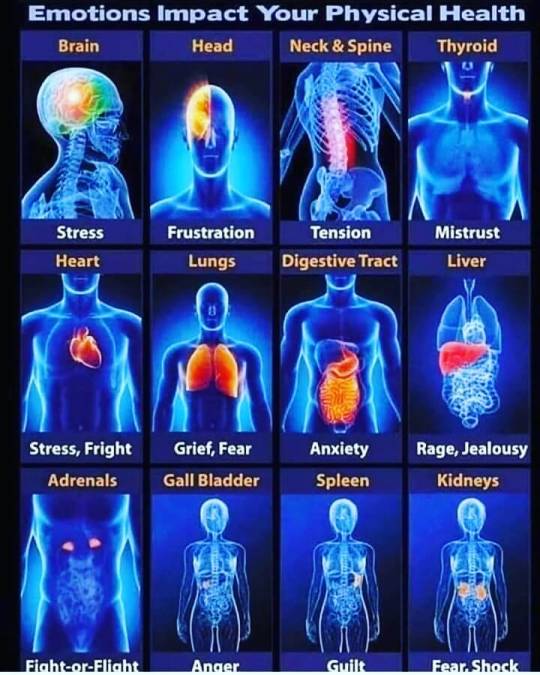
Take care of yourself, it's your responsibility ... #Emotions impact tour physical health... Mind, body & soul should be one... #PhysicalHealth #Brain #Stress #Head #Frustration #Neck #Spine #Tension #Thyroid #Mistrust #Heart #Fright #Lungs #Grief #Fear #DigestiveTract #Anxiety #Liver #Rage #Jealousy #Adrenals #Fight #Flight #GallBladder #Anger #Spleen #Guilt #Kidneys #Shock https://www.instagram.com/p/B9LHXcDHmXc/?igshid=k6wvh0s89g1b
#emotions#physicalhealth#brain#stress#head#frustration#neck#spine#tension#thyroid#mistrust#heart#fright#lungs#grief#fear#digestivetract#anxiety#liver#rage#jealousy#adrenals#fight#flight#gallbladder#anger#spleen#guilt#kidneys#shock
0 notes
Text
Wuhan coronavirus may be transmitted through digestive tract: WHO says treatments under investigation
Wuhan coronavirus may be transmitted through digestive tract: WHO says treatments under investigation
The novel coronavirus (2019-nCoV) that has claimed at least 361 lives in China may be transmitted through the digestive tract, according to Chinese experts. On Sunday, February 2, 2020, Xinhua reported that viral nucleic acids were found in patients’ stool and rectal swabs, suggesting that the virus may spread via the digestive system.
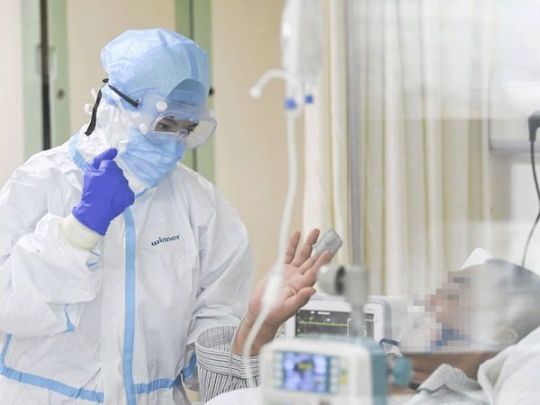
The latest findings were made after scientists observed…
View On WordPress
0 notes